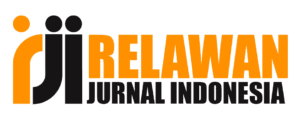Adaptive Governance in Achieving Food Self-Sufficiency and Family Resilience in Baubau City
Abstract
The urgency of this research stems from the high prevalence of undernourishment (PoU), or the prevalence of food insufficiency at 10.84% in 2023, and the Food Security Index (IKP), which only reached 80.49 in 2024, indicating limited access to sufficient, nutritious, and sustainable food in Baubau City. This condition can impact the overall welfare of families, so effective strategies are needed to improve food security in the area. This study aims to explore the role of adaptive governance in increasing the effectiveness of food self-sufficiency policies and strengthening family resilience in Baubau City. This research method employed a qualitative approach, utilizing data collection methods that included interviews, observation, documentation, and Focus Group Discussions (FGDs). Key informants included the Baubau City Agriculture and Food Security Office (Dipertan), the Baubau City Health Office, local farmer groups, and community self-help communities. Data were analyzed using NVivo 12 Plus. The findings of this study confirm that food security in Baubau City remains vulnerable due to a combination of structural, social, and economic factors. However, the implementation of adaptive governance offers a strategic opportunity to strengthen the local food system. With policy flexibility, cross-sector collaboration, digital technology integration, and a focus on strengthening nutritional literacy and family empowerment, Baubau can reduce its dependence on external supplies while building household food resilience. This demonstrates that family resilience and food self-sufficiency in Baubau can only be achieved through an adaptive approach that integrates the roles of government, communities, and the private sector in building a more inclusive, resilient, and sustainable food system.
References
Akter, A., Geng, X., Endelani Mwalupaso, G., Lu, H., Hoque, F., Kiraru Ndungu, M., & Abbas, Q. (2022). Income and yield effects of climate-smart agriculture (CSA) adoption in flood prone areas of Bangladesh: Farm level evidence. Climate Risk Management, 37, 100455. https://doi.org/10.1016/j.crm.2022.100455
Alwi, M. K., Yusriani, Y., & Purnawansyah, P. (2024). Stunting Incidence Based on Socio-Demographic Determinants, Family Food Security, and Maternal Digital Parenting. Health Education and Health Promotion, 12(4), 581–588. https://doi.org/10.58209/hehp.12.4.581
Atkinson, S. A., Dodson, C. B., & Wengrin, M. (2024). Utilizing FSA conservation loan programs to support farm conservation activities. Agricultural Finance Review, 2025. https://doi.org/10.1108/AFR-08-2023-0088
Badan Pangan Nasional. (2024). Indeks Ketahanan Pangan (IKP) Kabupaten/Kota Update Tahun 2024. Badan Pangan Nasional. https://satudata.badanpangan.go.id/datasetpublications/frq/ikp-kab-kota-2024
Badan Pusat Statistik. (2023). Prevalensi Ketidakcukupan Konsumsi Pangan. Badan Pusat Statistik. https://www.bps.go.id/id/statistics-table/2/MTQ3MyMy/prevalence-of-undernourishment.html
Brink, B. ten, Giesen, P., & Knoope, P. (2023). Future responses to environment-related food self-insufficiency, from local to global. Regional Environmental Change, 23(3), 10113. https://doi.org/10.1007/s10113-023-02069-4
Correia, M. J., Chainho, P., Goulding, T., Carvalho, F., Cabral, S., Ferreira, F. G., & Vasconcelos, L. (2025). Participatory action research supporting adaptive governance of Manila clam fisheries. Marine Policy, 174, 106605. https://doi.org/10.1016/j.marpol.2025.106605
Davila, F., Bourke, R. M., McWilliam, A., Crimp, S., Robins, L., van Wensveen, M., Alders, R. G., & Butler, J. R. A. (2021). COVID-19 and food systems in Pacific Island Countries, Papua New Guinea, and Timor-Leste: Opportunities for actions towards the sustainable development goals. Agricultural Systems, 191, 103137. https://doi.org/10.1016/j.agsy.2021.103137
Donati, F., & Tukker, A. (2022). Environmental Pressures and Value Added Related to Imports and Exports of the Dutch Agricultural Sector. Sustainability (Switzerland), 14(10), 1–12. https://doi.org/10.3390/su14106057
Elantara. (2025, May 6). Pemkot Baubau Gelar FGD, Bahas Ketahanan Pangan dan Inflasi Daerah. Beritakotakendari.Fajar.Co.Id. https://beritakotakendari.fajar.co.id/2025/05/06/pemkot-baubau-gelar-fgd-bahas-ketahanan-pangan-dan-inflasi-daerah/
Gazalin, J., Asiri, L., Inzana, N., Utami, R., Rahmawaty, C., & Selvianty, H. (2023). Percepatan Penanggulangan Stunting dan Kesehatan Ibu Hamil Sejak Dini dengan Pendekatan Keluarga di Kelurahan Bataraguru Kota Baubau. Community Development Journal: Jurnal Pengabdian Masyarakat, 4(6), 13208–13215. https://doi.org/https://doi.org/10.31004/cdj.v4i6.23675
Heeryl. (2022, February 5). Lahan Luas, Petani di Baubau Kurang. Kendarinews.Com. https://kendarinews.com/2022/02/05/lahan-luas-petani-di-baubau-kurang/
Heeryl. (2025, May 28). 100 Hari Kerja, Wujudkan Kemandirian Pangan. Kendaripos.Fajar.Co.Id. https://kendaripos.fajar.co.id/2025/05/28/100-hari-kerja-wujudkan-kemandirian-pangan/
Herrera-Calderon, O., Yuli-Posadas, R. Á., Peña-Rojas, G., Andía-Ayme, V., Hañari-Quispe, R. D., & Gregorio-Chaviano, O. (2021). A bibliometric analysis of the scientific production related to “zero hunger” as a sustainable development goal: trends of the pacific alliance towards 2030. Agriculture and Food Security, 10(1), 1–15. https://doi.org/10.1186/s40066-021-00315-8
Inzana, N., Asiri, L., & Sari, P. M. (2024). Towards Sustainable Food Security : Initiation of Adaptive Policies to the Climate Crisis in Baubau City , Southeast Sulawesi. Journal of Governance and Local Politics (JGLP), 6(2), 107–118. https://doi.org/https://doi.org/10.47650/jglp.v6i2.1505
Joshi, J., Kumar, S. S., Rout, R. K., & Rao, P. S. (2025). Millet processing: prospects for climate-smart agriculture and transition from food security to nutritional security. Journal of Future Foods, 5(5), 470–479. https://doi.org/10.1016/j.jfutfo.2024.08.004
Kekulandala, B., Cunningham, R., & Jacobs, B. (2023). Exploring social networks in a small tank cascade system in Northcentral Sri Lanka: First steps to establishing adaptive governance. Environmental Development, 46, 100847. https://doi.org/10.1016/j.envdev.2023.100847
Kertati, I. (2021). Female family-head resilience in building family food security in new normal adaptation of covid-19 pandemic. WSEAS Transactions on Environment and Development, 17, 810–818. https://doi.org/10.37394/232015.2021.17.76
Kumar, R., Jhajharia, A. K., Rohila, A. K., Rajpurohit, T. S., Shubham, Kumar, S., & Choudhary, N. (2024). Awareness and Challenges Faced by Farmers in Marketing Agricultural Produce through the e-National Agriculture Market (e-NAM). Asian Journal of Agricultural Extension, Economics & Sociology, 42(6), 9. https://doi.org/https://doi.org/10.9734/ajaees/2024/v42i62490 Open
Marrero, A., Lόpez-Cepero, A., Borges-Méndez, R., & Mattei, J. (2022). Narrating agricultural resilience after Hurricane María: how smallholder farmers in Puerto Rico leverage self-sufficiency and collaborative agency in a climate-vulnerable food system. Agriculture and Human Values, 39(2), 555–571. https://doi.org/10.1007/s10460-021-10267-1
Olubukunmi, O. O., & Aderemi, E. O. (2024). Climate Change Impacts, Food Security, Intra-Africa Trade and Sustainable Land Governance on Food Systems in Africa. World Journal of Environmental Biosciences, 13(3), 39–50. https://doi.org/10.51847/zfzddd5lnj
Pereira, L. M., & Ruysenaar, S. (2012). Moving from traditional government to new adaptive governance: The changing face of food security responses in South Africa. Food Security, 4(1), 41–58. https://doi.org/10.1007/s12571-012-0164-5
Salman, R. (2022). Menjaga ketahanan pangan kota kecil di tengah ancaman krisis global. Ekuatorial.Id. https://www.ekuatorial.com/2022/06/menjaga-pangan-kota-kecil-di-tengah-ancaman-krisis-global/
Shoyama, K., Nishi, M., Hashimoto, S., & Saito, O. (2021). Outcome-Based Assessment of the Payment for Mountain Agriculture: A Community-Based Approach to Countering Land Abandonment in Japan. Environmental Management, 68(3), 353–365. https://doi.org/10.1007/s00267-021-01497-4
Teneva, L., Free, C. M., Hume, A., Agostini, V. N., Klein, C. J., Watson, R. A., & Gaines, S. D. (2023). Small island nations can achieve food security benefits through climate-adaptive blue food governance by 2050. Marine Policy, 151, 105577. https://doi.org/10.1016/j.marpol.2023.105577
Tleuberdinov, A., Nurlanova, N., Alzhanova, F., & Salibekova, P. (2025). Food security and self-sufficiency as a factor of country’s sustainable development: assessment methods and solutions. Discover Sustainability, 6(1), 43621. https://doi.org/10.1007/s43621-025-00849-y
Traore, B., Birhanu, B. Z., Sangaré, S., Gumma, M. K., Tabo, R., & Whitbread, A. M. (2021). Contribution of climate-smart agriculture technologies to food self-sufficiency of smallholder households in mali. Sustainability (Switzerland), 13(14), 13147757. https://doi.org/10.3390/su13147757
Wen, J., Wan, C., Ye, Q., Yan, J., & Li, W. (2023). Disaster Risk Reduction, Climate Change Adaptation and Their Linkages with Sustainable Development over the Past 30 Years: A Review. International Journal of Disaster Risk Science, 14(1), 1–13. https://doi.org/10.1007/s13753-023-00472-3
Copyright (c) 2025 Journal of Governance and Local Politics (JGLP)

This work is licensed under a Creative Commons Attribution-NonCommercial-NoDerivatives 4.0 International License.










